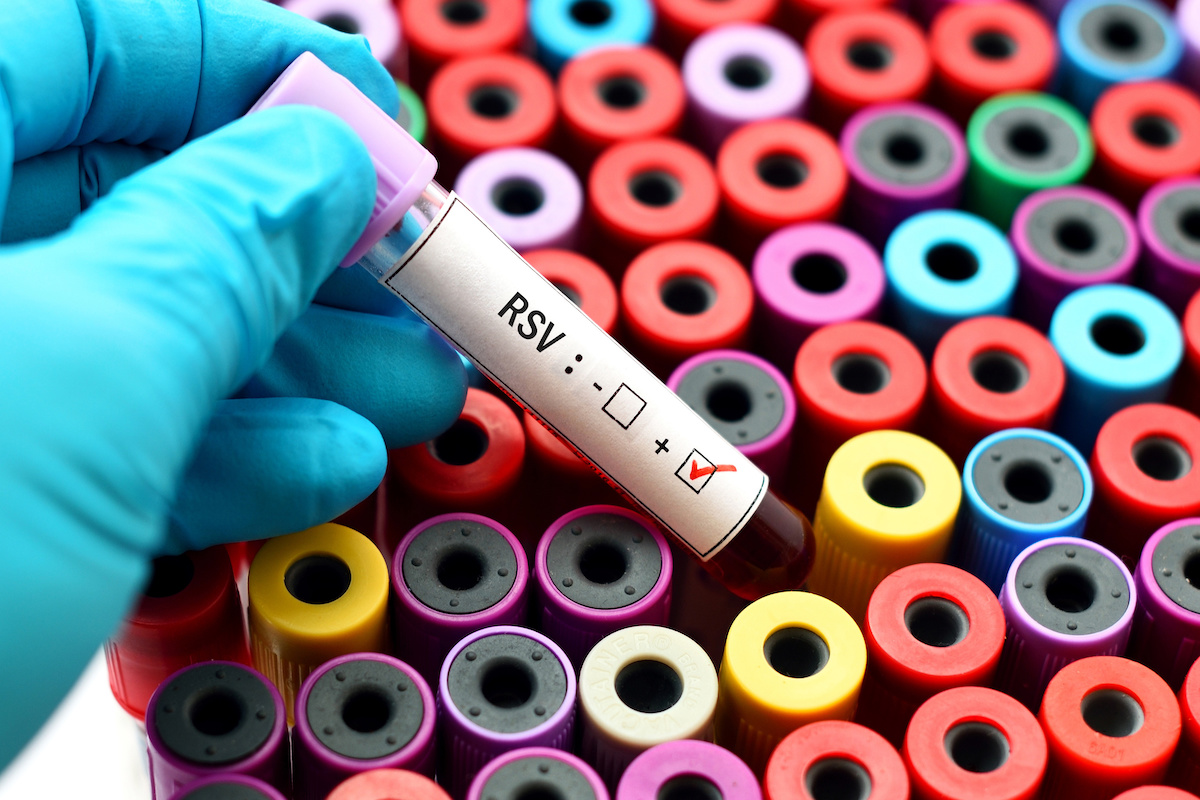Respiratory syncytial virus (RSV) is a common respiratory virus that typically affects young children, the elderly, and those with compromised immune systems. This virus usually causes mild, cold-like symptoms that dissipate within 1 to 2 weeks but it can be much more serious in young or elderly patients who contract it.
RSV is the most common cause of bronchiolitis and pneumonia in children under the age of 1 in the United States. In fact, studies show that in the U.S. each year, RSV leads to 2 million doctor visits, 58,000 hospitalizations, and 500 deaths in children under the age of 5. It is also one of the leading causes of pneumonia in Americans over the age of 65.
Common symptoms in young children with RSV include fussiness, poor feeding, lethargy, fever, runny nose, decreased appetite, cough, and wheezing. The virus can also cause the airways to swell and fill with mucus, sometimes requiring the use of breathing treatments, oxygen therapy, and even a ventilator.
RSV season typically runs from fall through early spring. Physicians are noticing an alarming trend, however – a surge in RSV cases in the summer months. The incidence has become so prevalent that the CDC issued a health advisory on June 10, 2021 about the increase in cases in the southern United States.
The question experts want to answer is: why? Why are we seeing a sudden emergence of a cold weather virus in the middle of summer? One theory is the Covid-19 pandemic. RSV spreads through contact with airborne droplets from infected people; this virus is also more likely to linger on the skin or other surfaces (toys, etc) than the Covid-19 virus is. Infants and young children are often exposed to RSV by older siblings who bring the virus home from school or from other infected children they come into contact with at daycare. The pandemic forced children to homeschool and daycare centers to be closed or severely reduced in capacity. By limiting exposure to the virus, children were less susceptible to picking up the virus.
Some also argue that more frequent testing for RSV could also lead to an increase in positive cases. Because the symptoms of RSV and Covid-19 are so similar, many parents are having their children tested for symptoms that they might have previously regarded as “just a cold.”
Pandemic restrictions could play a part in the decline of RSV cases in late 2020 and early 2021. Quarantine, the use of masks, and the practice of social distancing also limited the risk of exposure to the RSV virus. In fact, there is a direct correlation between the increase in RSV cases and the easing of pandemic restrictions.
Currently there is no approved vaccine or treatment for RSV. People who are diagnosed with the virus are treated symptomatically with fever reducers, steroids, breathing treatments, etc. Best practice is to take preventative measures, not just during RSV season but year-round. Some tips to prevent RSV and other airborne viruses include:
- Covering coughs and sneezes with tissue or the upper shirt sleeve
- Washing hands often with soapy water for at least 20 seconds at a time
- Avoiding close contact with people (kissing, shaking hands, sharing cups/drinks)
- Cleaning frequently touched surfaces (cell phones, tablets, doorknobs)
- Avoiding close contact with sick people (fever, cough, runny nose, etc.)
- Avoiding touching the face with unwashed hands

